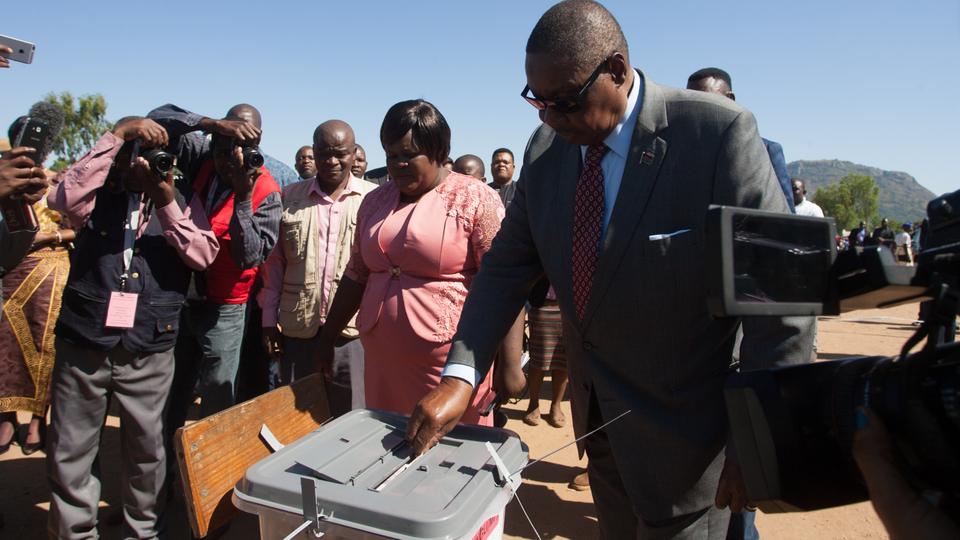Lessons from Malawi elections
Just as it happened in Nigeria at the 2015 elections, the opposition in Malawi defeated the ruling party in the country’s rerun of the general elections, which took place last month. The elections had taken place last year and in the results declared then, the incumbent and President Peter Mutharika who had been in power […]

Just as it happened in Nigeria at the 2015 elections, the opposition in Malawi defeated the ruling party in the country’s rerun of the general elections, which took place last month.
The elections had taken place last year and in the results declared then, the incumbent and President Peter Mutharika who had been in power since 2014 was said to have won by 38.57 percent ahead of the opposition’s Lazarus Chakwera of the Malawi Congress Party. (MCP) who reportedly scored 35.41 percent of the votes.
The opposition parties led by Chakwera’s MCP protested the result and petitioned the country’s Supreme and Constitutional court, which in February this year overturned the result and ordered a rerun.
It was at the rerun that Lazarus Chakwera won by 58.57 percent of the votes to defeat President Mutharika signalling an unprecedented development in Malawian politics.
The outcome of the rerun which was acknowledged by local and international observers of Malawian politics was expected.
The Malawian people had gotten weary of the rule of seventy-nine year old President Mutharika whose six year rule, ushered with so much fanfare and hope, had not yielded the desired dividends.
Instead, conditions in landlocked Malawi, one of the poorest in Africa, continued to deteriorate for the majority of the people who live on less than a dollar.
Furthermore, as Malawians were coping with deteriorating economic conditions, there were widespread allegations of corruption levelled at some of the cronies of the president which were carried in the Malawian media.
It is these untoward developments that spurred the opposition to mount a spirited challenge to President Mutharika led by the sixty five year old Chakwera, which produced this landmark political upset.
Again, as with the election of Peter Mutharika in 2014, Malawians are looking forward to President Chakwera’s reign with hope and expectations.
Having spoken with their votes to change an undesirable government and in the manner they did, they will expect nothing less from the incoming government.
Indeed, the victory of Chakwera is a challenge for him not just to deepen the democratic process, which produced him, but in a significant way to deliver on the expectations of the Malawian people in improving their economic conditions.
This is why reports carried in both the local and International media of developments in the country following the ascendancy of President Chakwera are disturbing.
It has been reported that President Chakwera’s cabinet, which he appointed shortly after he assumed power, are made up of persons who come from the same family.
Although the president has defended these appointments as being to reward competence regardless of family connections, many Malawians are left wondering why the president cannot widen his scope in seeking for competent hands from across the country.
They see these appointments as a throwback to the same cronyism that existed under the government of Peter Mutharika by a government which ought not to replicate the same mistakes.
Malawians justifiably reason that by bringing close relations into the cabinet,the president is making it easy for members to collude and cover up any untoward actions.
Indeed Malawians say that this is a perfect setting for corruption to flourish under the new government.
It is often the case in Africa that governments who came to power in a blaze of glory and expectation turn round to do the opposite of what they pledged to do when seeking the mandate of the people.
We have seen this in a number of countries of which Nigeria is one.
This has created a feeling of disappointment bordering on cynicism by the electorate of African countries who are beginning to develop a dangerous attitude of apathy in the democratic process and experiment of their various countries.
In the case of Malawi, we call on President Chakwera, who is just commencing his rule, to studiously reflect on these feelings expressed by the people of Malawi.
Let him not be carried away by the euphoria of his victory to think that he is now safely ensconced in office as to ignore the demands of Malawians.
Therefore, it is incumbent on him not to take Malawians for granted because his victory was made possible by their votes. He should change course and do the needful before he loses the support of the people who defied all odds to vote him into power.
